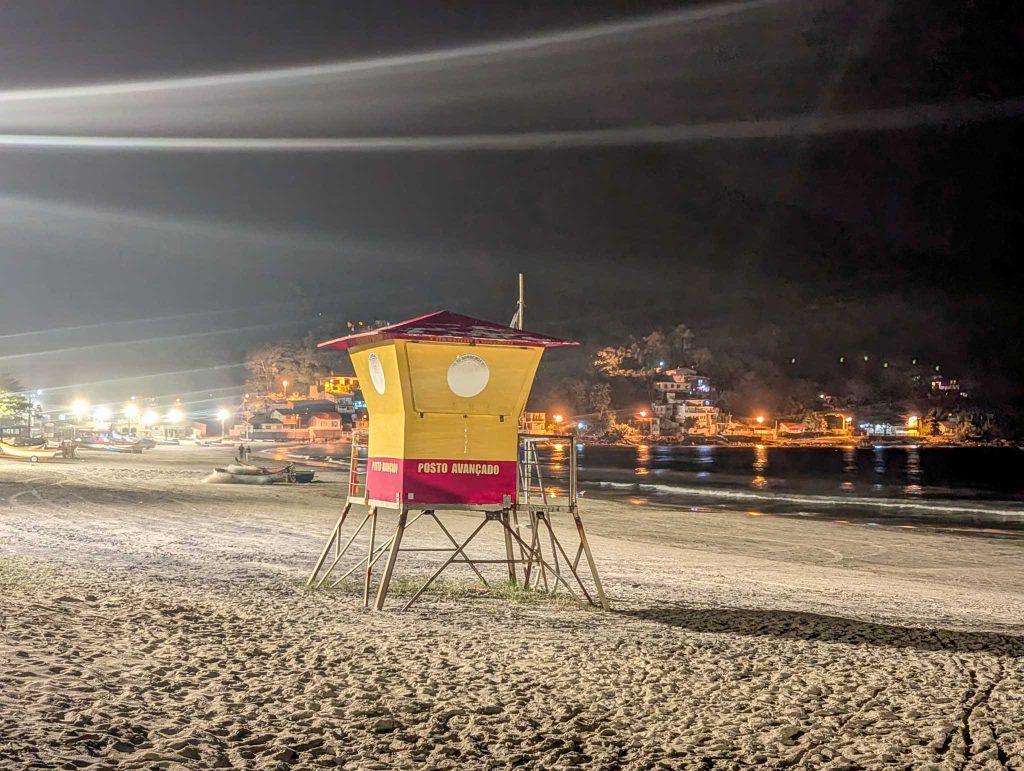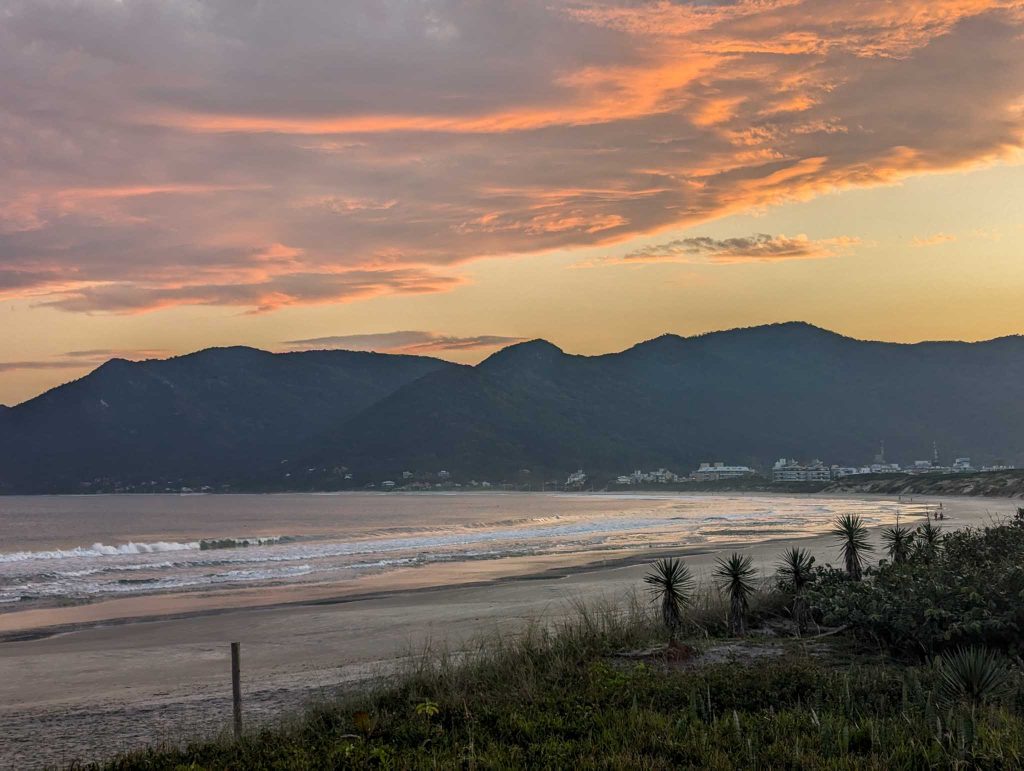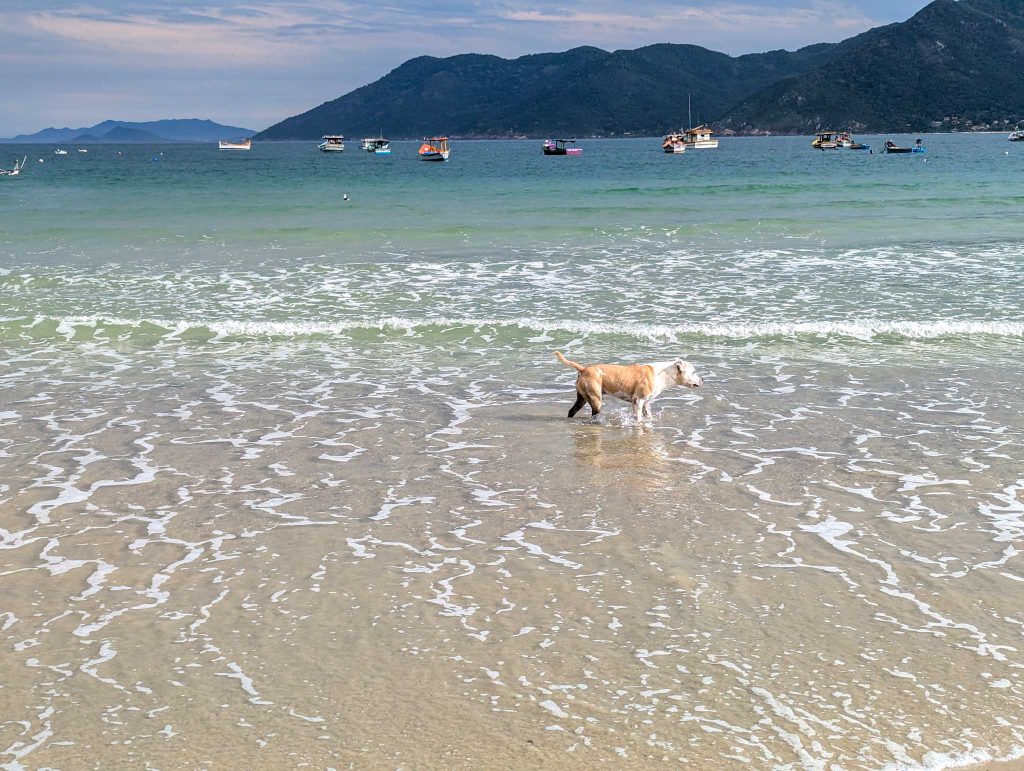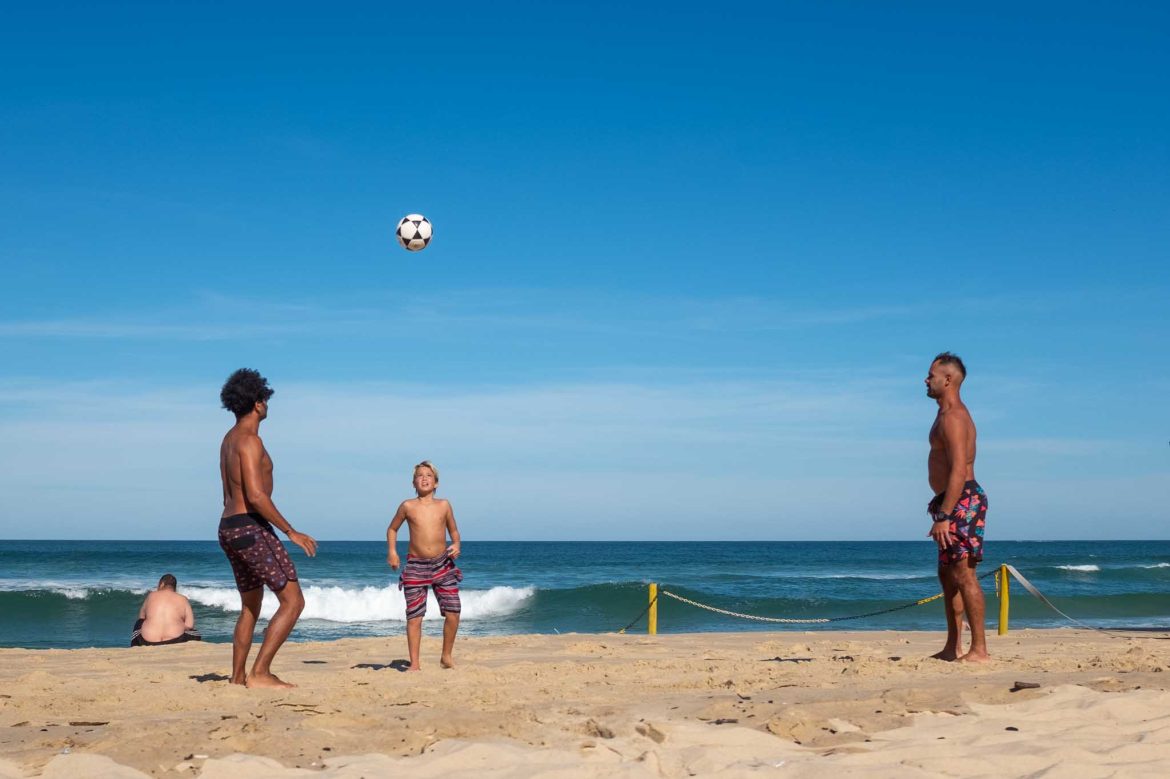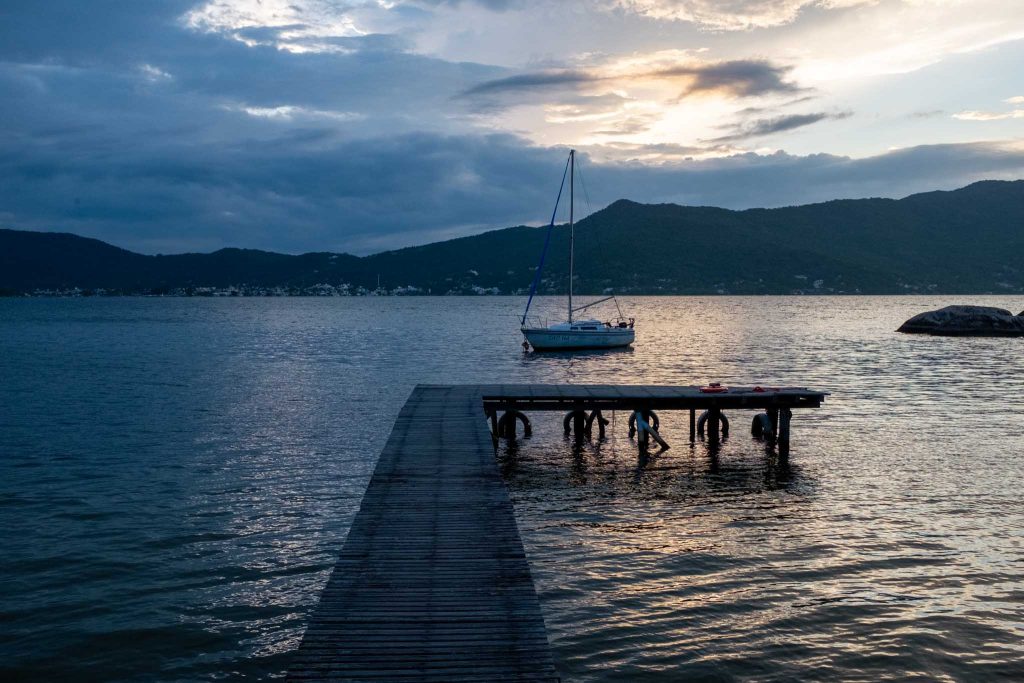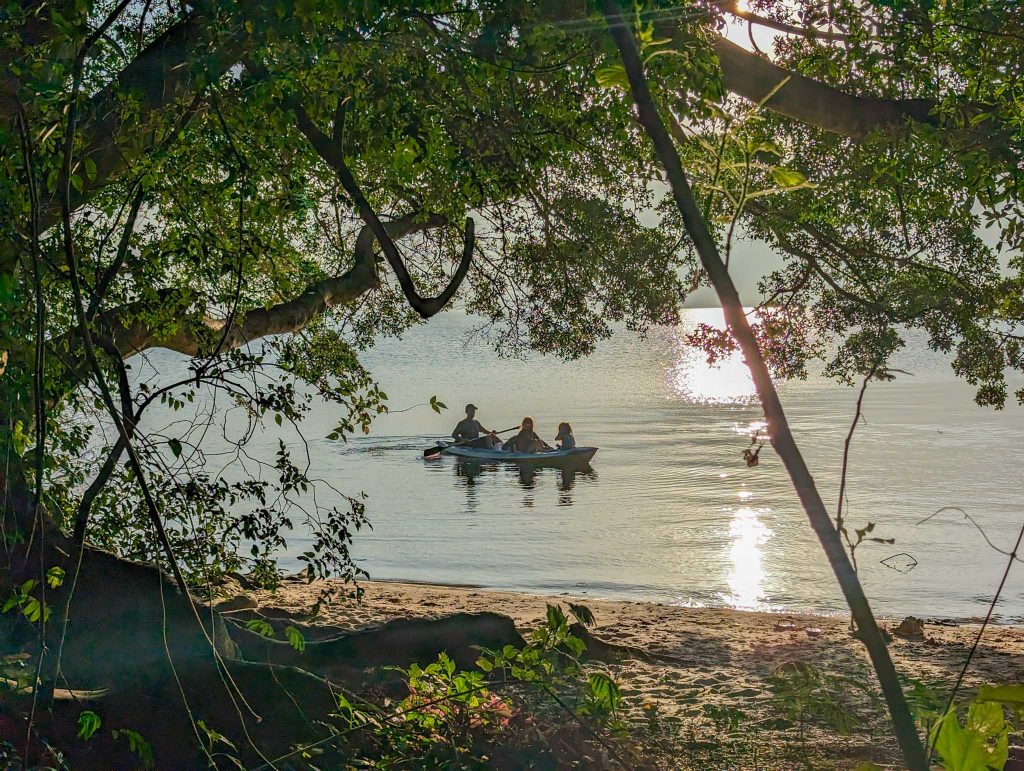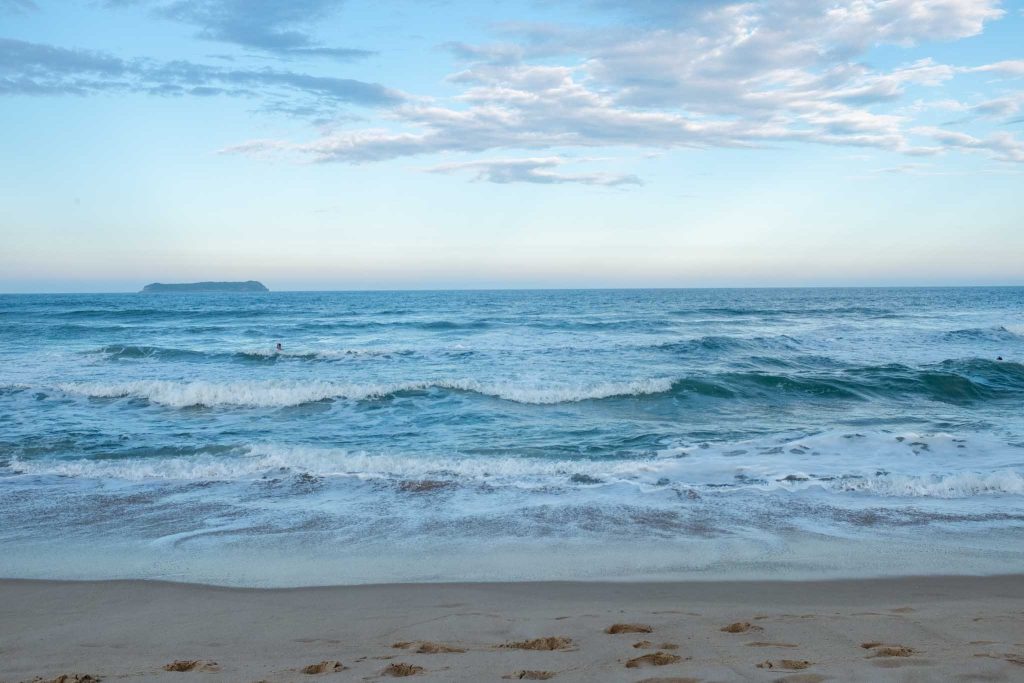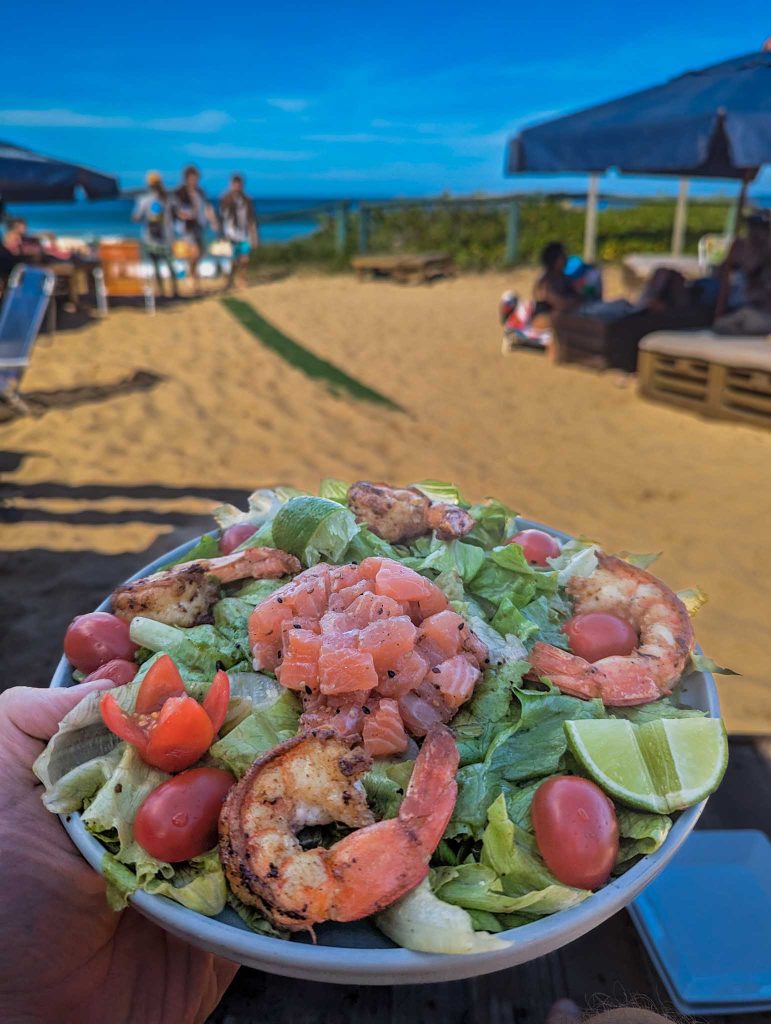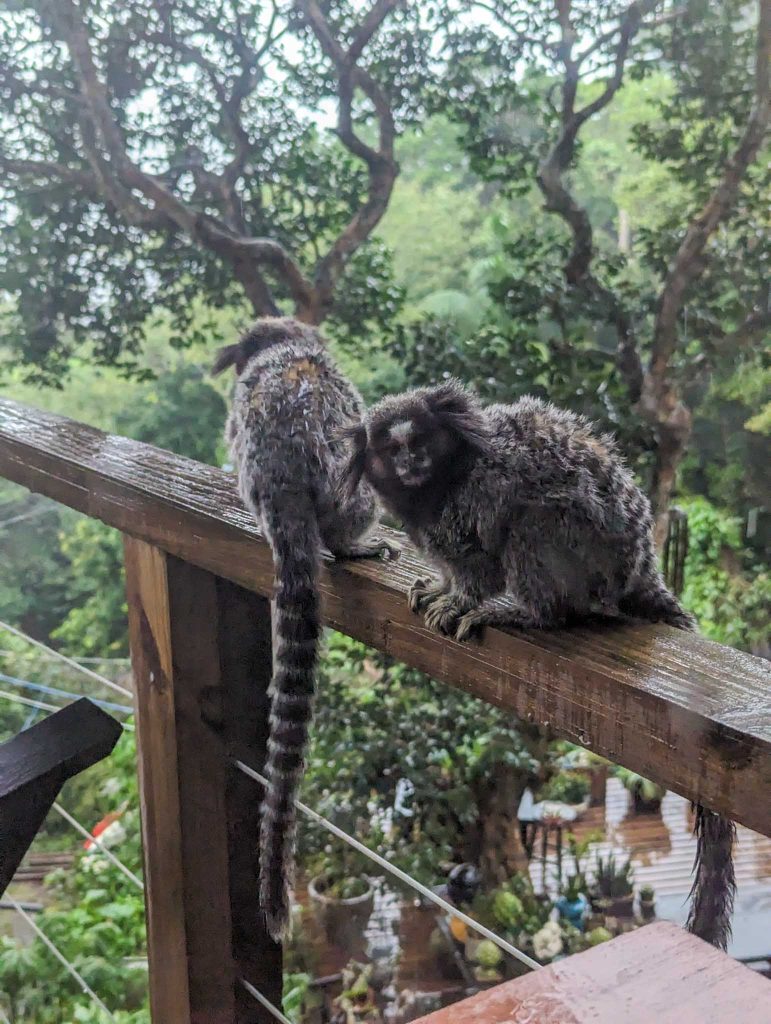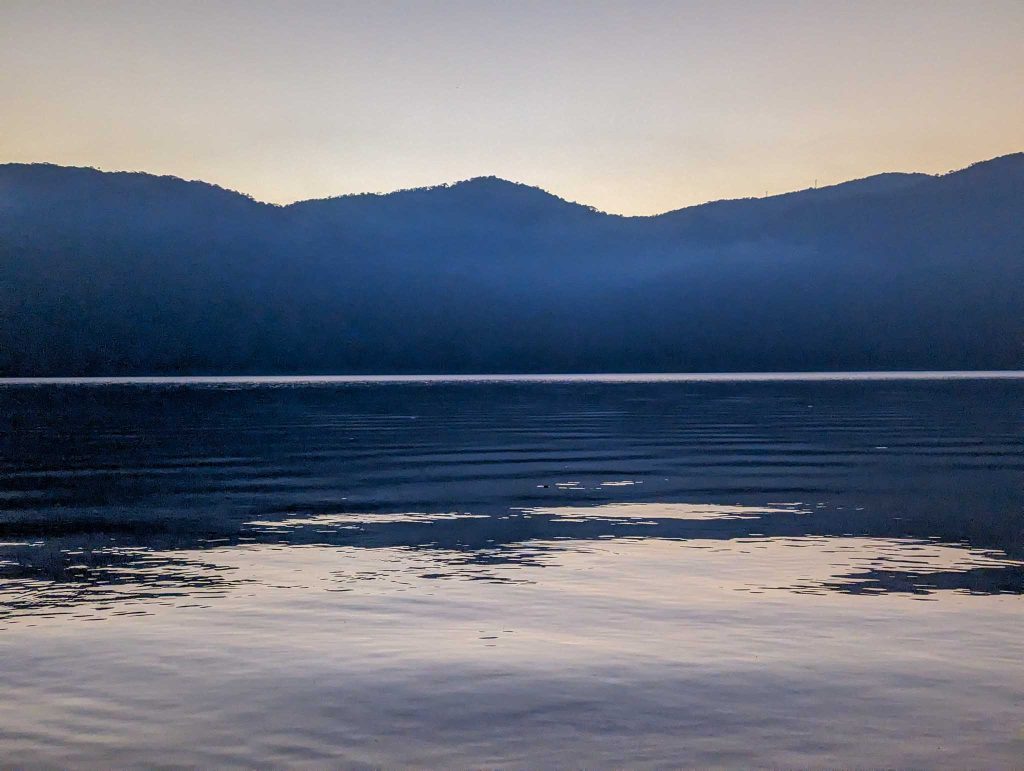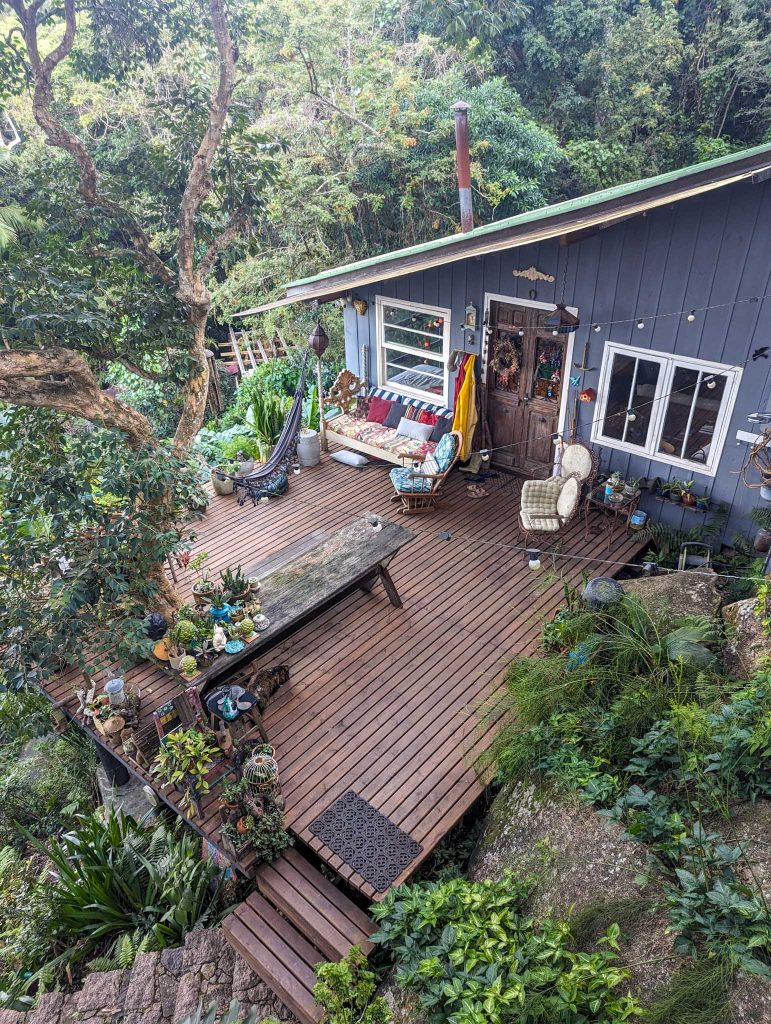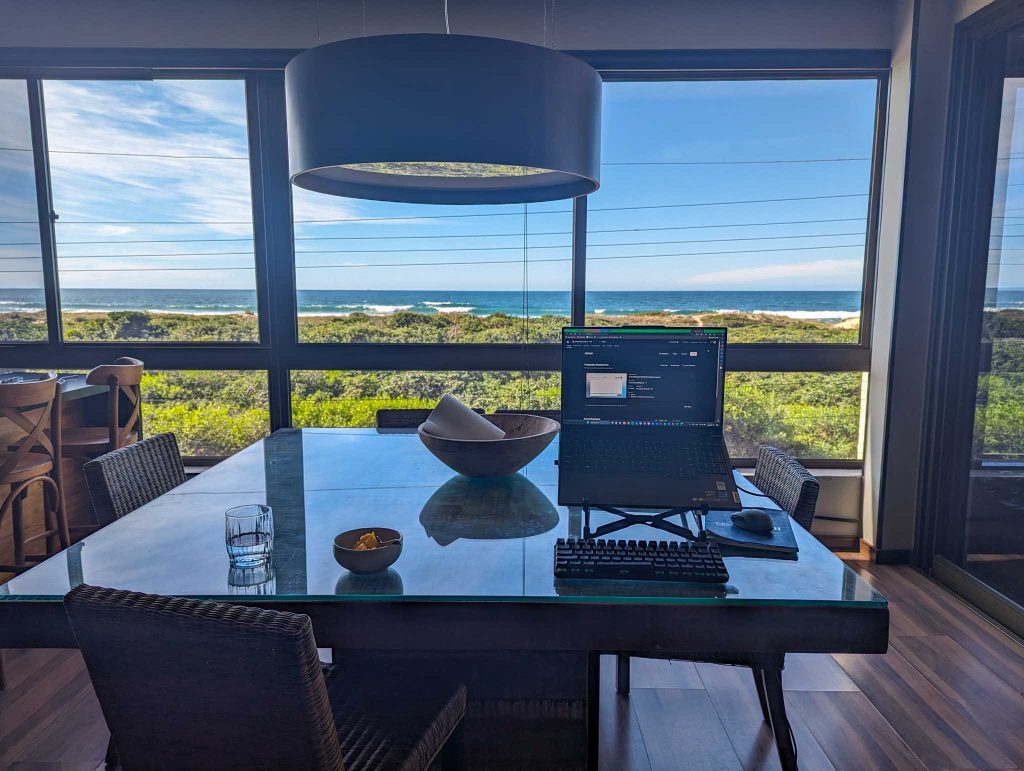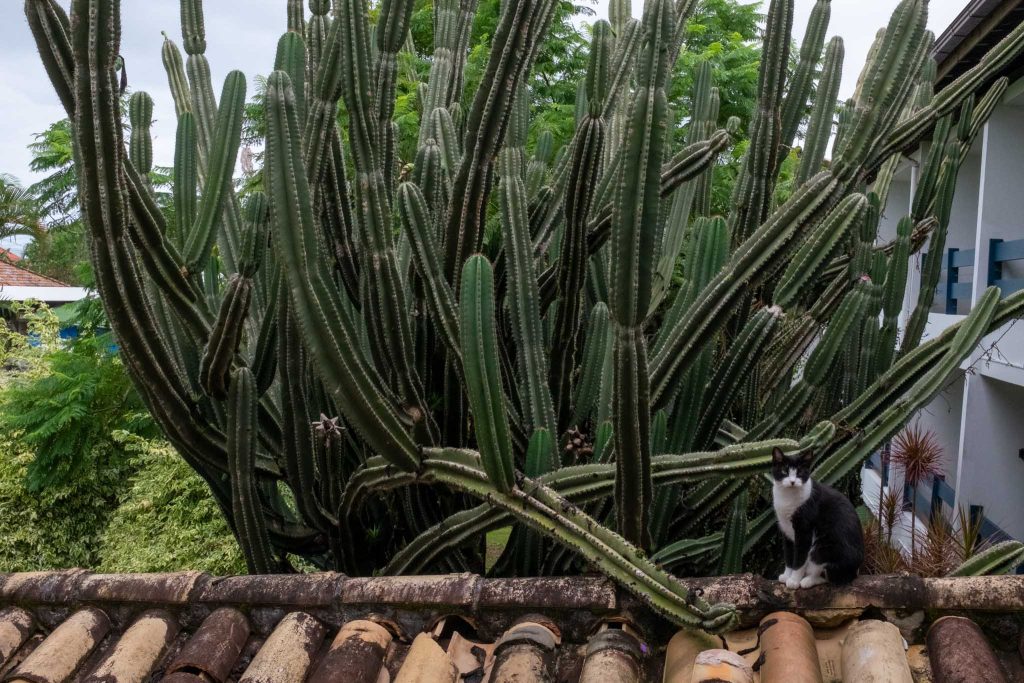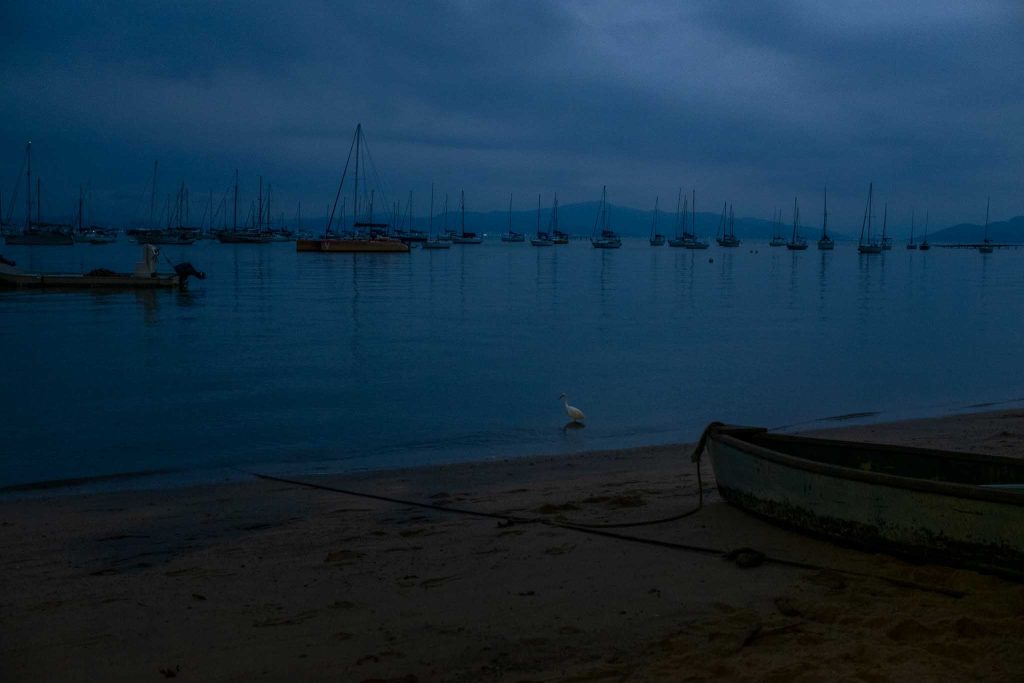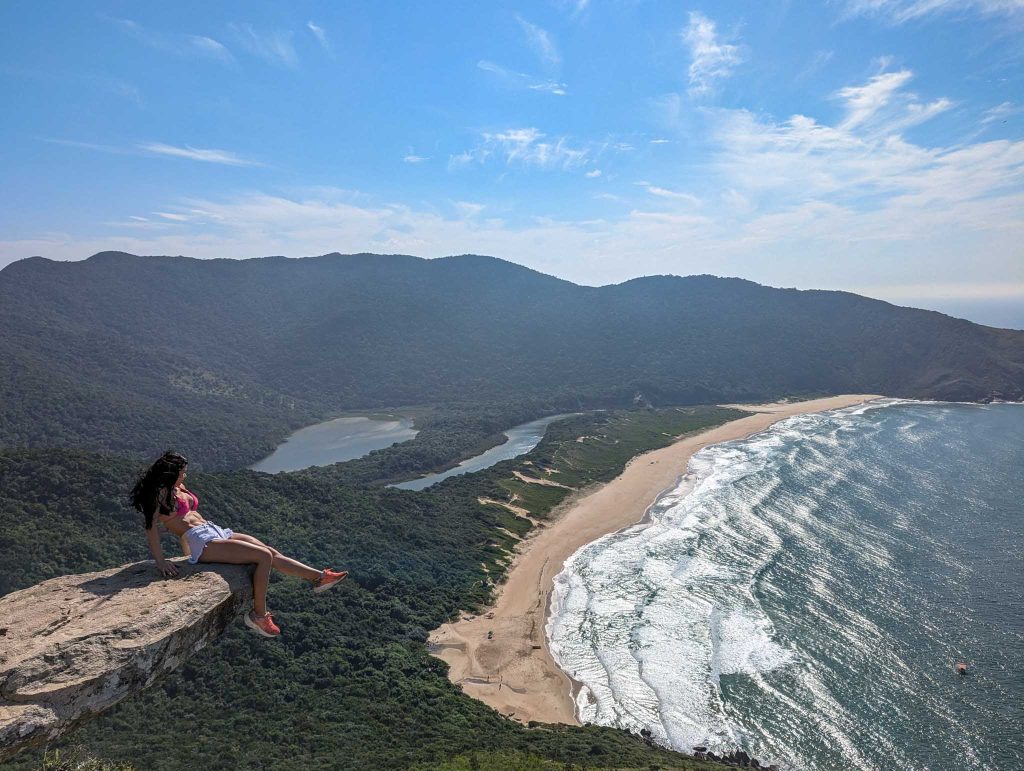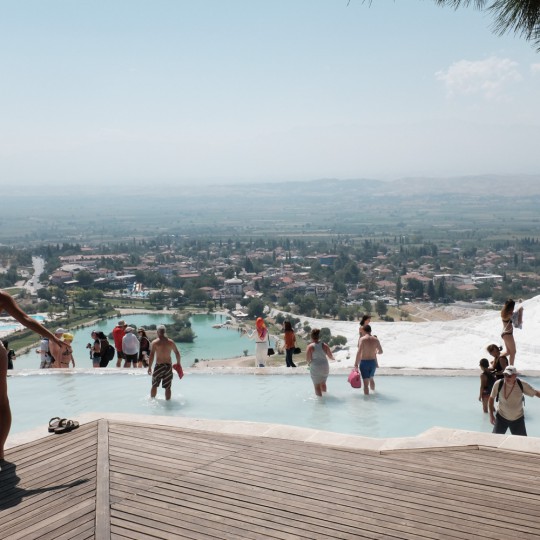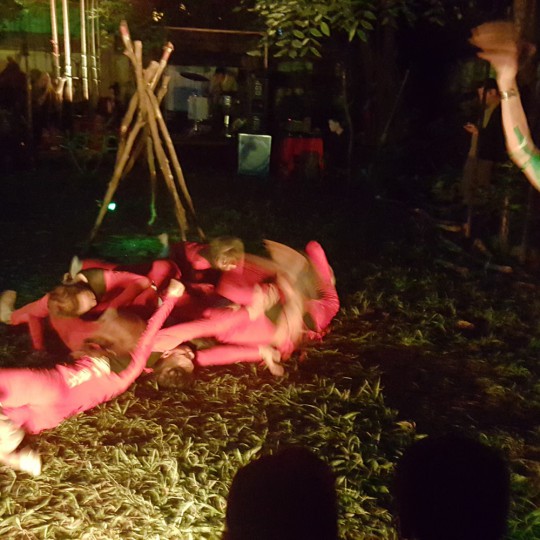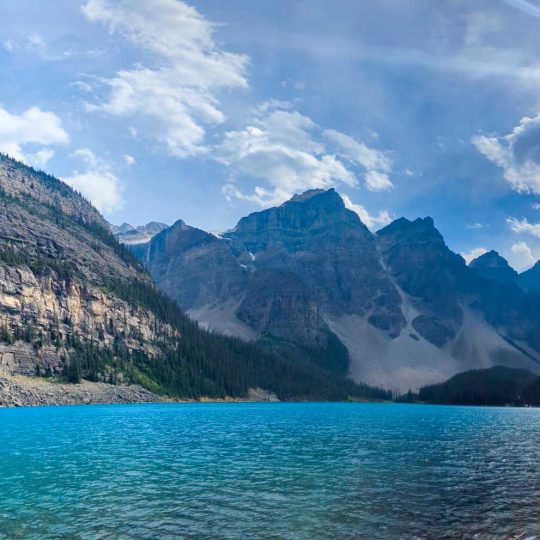I often write about my travel queue – that never-ending chain of potential destinations continually elongates. Each that captures my curiosity and I want to visit gets queued, and so do appealing recommendations others give me. New entries are consistently added to the queue, but it takes a while to dequeue them because many destinations precede them. Invitations always elbow themselves towards the front of the queue (higher priority) as long as they don’t interfere with the current yearly strategic objectives (YSOs) — yeah, there’s a loose process and ruleset, which, of course, are superseded by their own irregularities and trump cards (e.g., global pandemics). The queue never gets shorter; it always gets longer, as it is easier to collect potential destinations rather than to visit them.
Anyway, that preamble served again to remind you of the proverbial Travel Queue® so I could tell you about how Florianópolis had been on it for a long time owing to its cultural significance to the Brazilians and foreign travelers who had recommended it to me (along with literally dozens of must-visit places in Brazil – what a great country). “Floripa” is actually two things — it’s the city of Florianópolis, in the state of Santa Catarina, in the south of Brazil, and also the island of the same name upon which Floripa resides.
I had it in my mind to take “Floripa” off my queue in grand fashion—three months there exploring different places around the island of Florianópolis while also avoiding the city of Florianópolis, as my research had suggested it was just sort of another city. The real appeal, draw, and magic of Florianópolis would be found on the dozens of beaches, hiking trails, geographic features, and towns scattered around the island. Typically I limit my first visit to a place to a week or two if I am unsure of the lay of the land or if I will actually enjoy being there. This time for Floripa though, I felt really confident that I would fit right in and love living there, so I planned three months across four different AirBnbs scattered on different parts of the island.
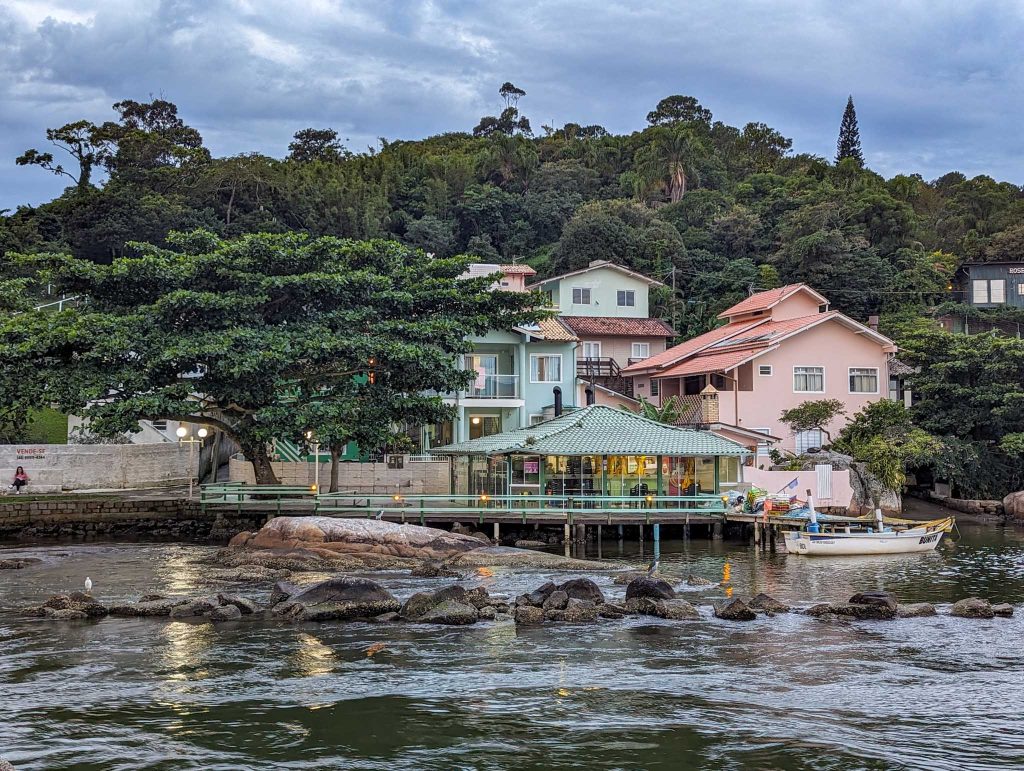
I strove to avoid summer and high tourist season in Floripa and planned to visit during the end of summer and beginning of autumn, the shoulder season — I expected that the weather wouldn’t be so hot and the car traffic from tourists would be greatly lessened (I had heard horror stories of bumper-to-bumper traffic spanning the entire island which made me want to avoid it). My strategy played out great. The weather was perfect (for me), I never experienced inordinate traffic, and I thoroughly enjoyed living during the not-crowded “low season.”
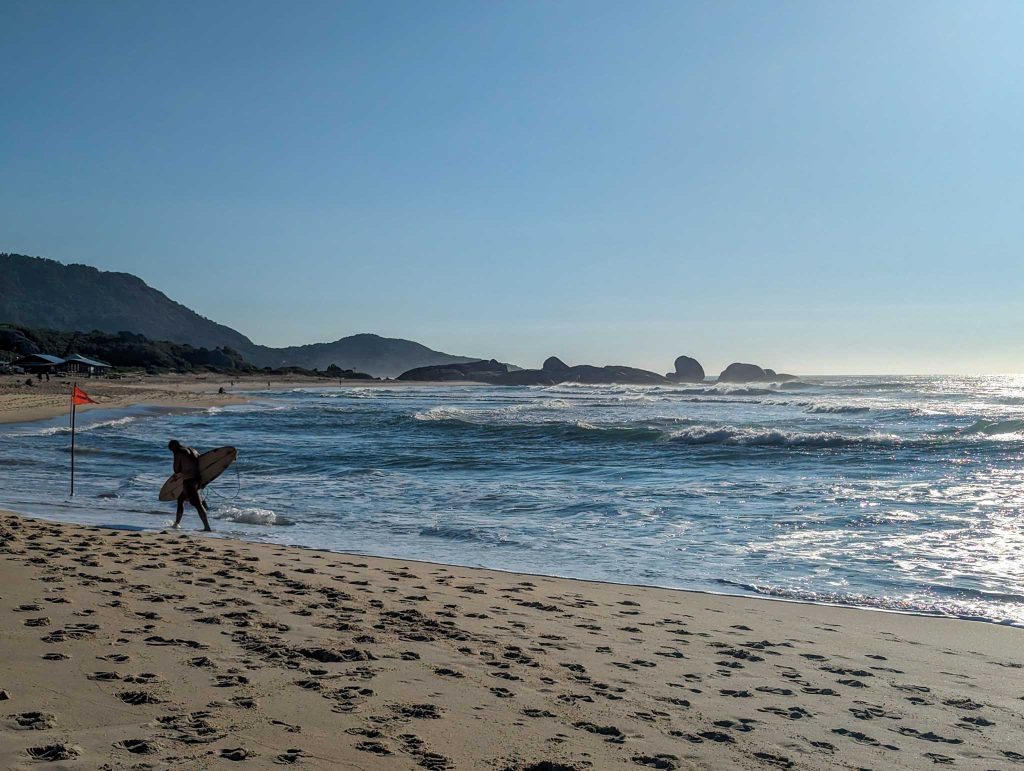
Praia Mole
I started out staying near arguably the best beach in Floripa, which is popular with surfers, called Praia Mole. I stayed at a hostel with a built-in co-working space called Selina that had been recommended to me — thanks Aline! — for a soft landing where I could get my lay of the land from other travelers while also assuring I could be efficient with work. The beach was two hundred meters from where I was staying, which made it really convenient for swimming, running, and doing my morning exercise on the pull-up and parallel bars of the lifeguard station there. A downside of Praia Mole is that it’s a little secluded from other places and even conveniences like groceries or a gym, but that’s also a big part of the appeal.
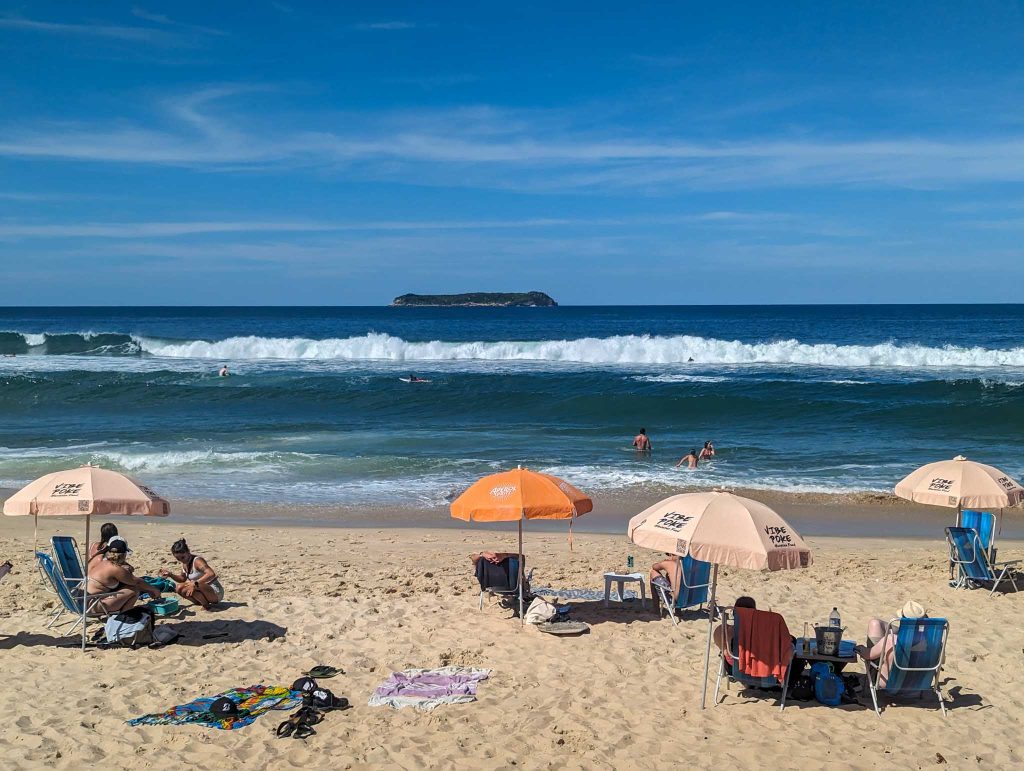
The beach looks “natural,” with some cafes and beach bars scattered along its length, but not too many. Parts of the beach are marked each day to show stronger rip tide currents that swimmers should avoid. Dozens of surfers are often dispersed in the water beyond the breaks, not too crowded. The entire beach has a relaxed, comfortable, and peaceful personality which I think could also describe much of Brazil.
The Selina in Praia Mole was an ideal entry point into Floripa. The hostel’s restaurant had all the staples needed for surviving two weeks without a grocery store in walking distance: breakfast tapiocas and hamburgers. I immediately developed a systematic routine of beach morning workouts and swimming before returning to the hostel to shower and then attend the morning Hatha yoga class that was offered each morning. I hadn’t been doing Hatha yoga since my time in the Maldives during COVID-19, and this time around, it was needed to knock the rust off of three lazy months in Colombia. I gotta say that my morning beach workout, swim, and yoga routine was maybe the fastest path to getting back in shape I could have asked for, and Brazilians already know it — which is why just about everyone who lives in Floripa is healthy, active, and fit. Ironman races are regularly hosted owing to the ideal conditions for running, swimming, and biking all around the island. If you go to the beach you are likely to see people running or exercising on it.
Lagoa da Conceição
Or “Lagoa,” as everyone calls it, is the most central location on the entire island of Floripa and is conducive to convenient exploration. It’s named for the large lagoon that abuts it, has boats and paddle boarders on it, and serves to accompany beautiful sunsets each evening. Since the town is inland, and not on a beach, locals use it as sort of a beach proxy with picnics, walking, and running happening alongside it. In this way, it serves as a suitable replacement owing to its convenience and peaceful beauty.
I stayed in Lagoa for five weeks, living in a studio apartment room that was actually the converted condo unit where an elderly couple’s daughter used to live (she moved to Munich). A hammock was outside my front door (I used it twice; unfortunately, it always seemed like I had something else I should be doing instead), and each morning, I was awoken by the voices of the passersby on the sidewalk on the other side of the pedestrian gate. Here, too, I had my routine in place — Spanish practice after waking up and then the gym afterward, breakfast in either the local coffee shop/bakery with two cups of coffee with milk or eaten over my kitchen sink — protein shakes and raw eggs. Then, I would work until dark, eating a lunch of raw carrots, sardines, and protein shakes over the kitchen sink. For dinner, I would walk ten minutes to eat at this great Arabic place — I always got the same thing – 1 lb of raw Kibbah and tabouleh salad. I could eat that every night.
For a couple of weekends, I rented AirBnbs on other parts of the island to explore the neighborhoods of Jururé, Praia do Ingleses and also get away from my lovable elderly landlords, who while very sweet were also always around to the point it felt like I was a kid living at Grandma and Grand Dad’s.
I was told that the town of Lagoa is crowded with tourists during the high summer season to the point that you can’t walk down the street at night without bumping into people. When I was there, though, there was just the right mix of people walking around and empty space. The town is very pleasant for walking around and doing errands, and there are plenty of cafes and restaurants to eat whenever you feel like not eating protein shakes and sardines while bending over the kitchen sink (not that I would know what that feels like).
I spent a weekend in the north of the island in a cool cabin with an outdoor sauna and hot tub. What a privilege. When living in a foreign place for extended periods of time these weekend trips are effortless and convenient — it was just 45 minutes away in an Uber.
A favorite ritual of mine was during my time in Lagoa during laundry days when I would carry a bag of soiled gym clothes and dirty socks four blocks away to the laundromat. I had just enough time during the washing cycle to go grocery shopping, go back home to unload them, and return in time to the laundromat to load the clothes into the dryer. At this point, I would get work done on my laptop or write in my journal, waiting for it to finish. For some reason, these sorts of activities are more fun elsewhere in a foreign city. Sometimes I miss the convenience of having a washer and dryer like I do back at my home in Denver that I rent out (I just bought a new washer and dryer set last November for my tenant), but I think it’s nice to get accustomed to less convenient ways of doing certain things and realize they aren’t so important. That’s one lesson I took away from my time at Grandma and Grandpa’s shared-wall condo in Lagoa.
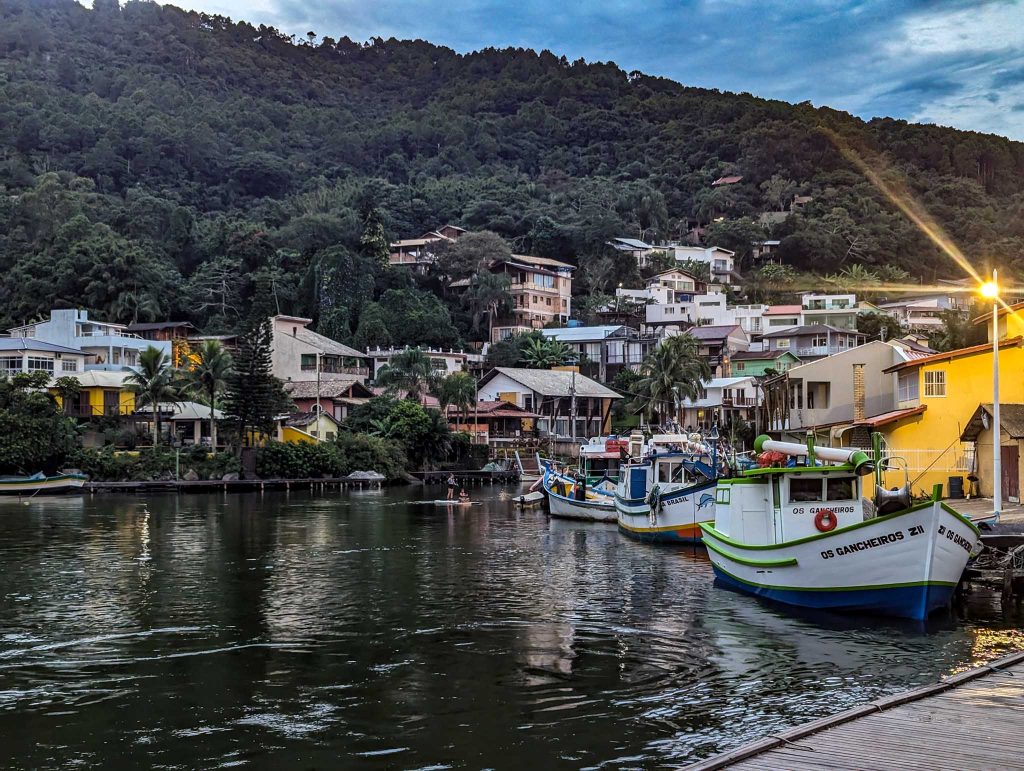
Campeche
I moved to Campeche for five weeks to live in a small hut 40 meters from the ocean. Campeche is a nice suburban area with a very long, natural beach. The neighborhoods are undergoing a lot of redevelopment and it seems to be a trendy place for people to buy and develop property. Owing to the residential nature of the city blocks, though, and where my little hut was located, I was 20 minutes walk away from the nearest grocery store and gym, and it suited me just fine. It’s a rare privilege to have accessible walkability in your daily life and not need a car to get to where you’re going. On my way to the gym, I’d eat a banana or two and enjoy the morning sunshine. On the way home I’d stop by the supermarket and get food for the day. I think it’s funny that this sort of routine isn’t very typical in the lives of most Americans owing to the urban designs that necessitate most people having cars to get everywhere. It sure has been a pleasure over the past nine years to realize how much I enjoy walking to get to where I’m going, as long as I have plenty of time to do it. In Brazil, it always seems like there is plenty of time to do whatever you want. In Brazil, I recall never being in a hurry.
When I had booked my small hut through Airbnb, I hadn’t expected to be isolated because I had no insight into the neighborhood or surroundings. This is typically why I do reconnaissance trips to new destinations to test the waters in case a location is problematic (like Casablanca, Morocco), but at this place, I feel pretty confident that I can make anything work, and even if a place isn’t ideal, I am so adaptable that I can use it as an opportunity to grow and figure out how to like it. For me, these situations often feel immensely fulfilling because they serve as reminders that we can be happy with less than we expect.
That studio apartment hut near the beach, with a double bed and dining room table that I turned into my work desk, was all I needed to be a happy, simple beach bum. I would try to work diligently so that I could escape by 2 p.m. to bask in the afternoon sunlight on the beach and take a small nap. What a privilege.
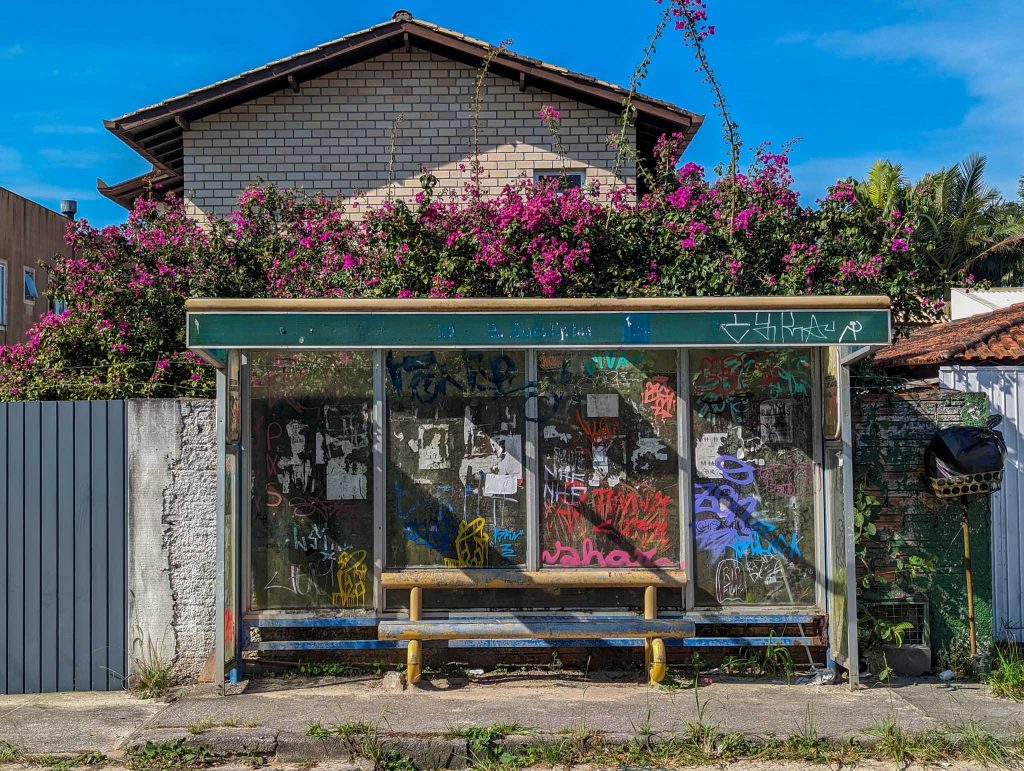
My self-cooked meals were very simple – meat and vegetables primarily, also some fruits, eggs, cashews from the North East of Brazil (which are giant) and protein shakes. I cooked every day unless I was doing a laundry run to Lagoa where I would figure out how to have an açai and kibbeh at my favorite Arabian restaurant. My other favorite food was poke bowls. I found a place in Campeche that made them really well, so I ate them at every opportunity on my way to or from Lagoa or other parts of the island. Absolutely 100% Reid food. I worked my way up to eating two of them, and sometimes I wanted three.
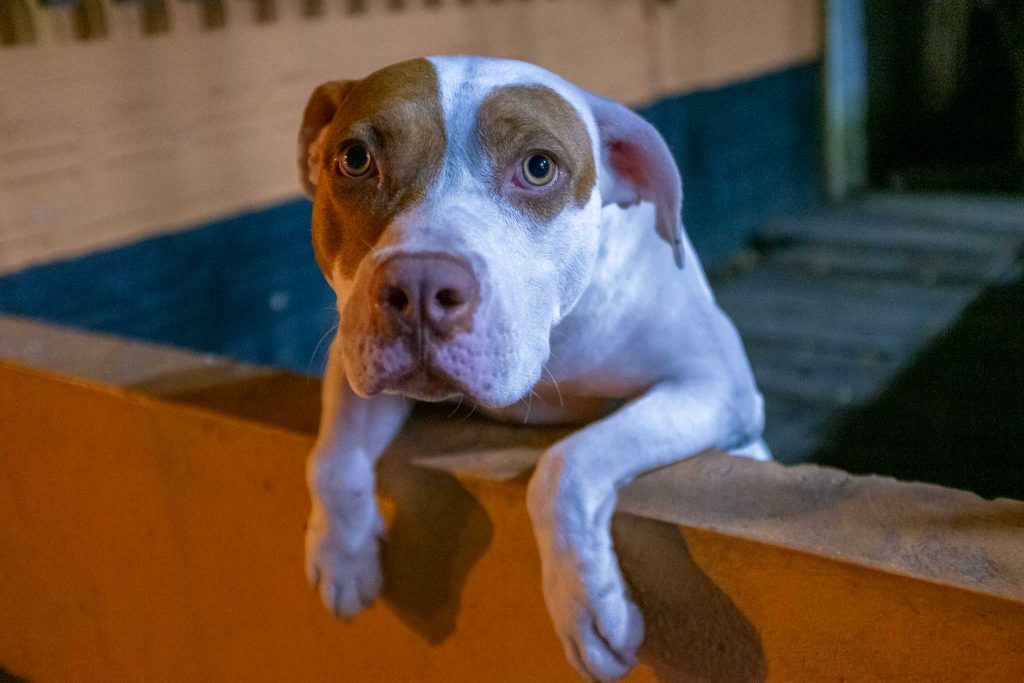
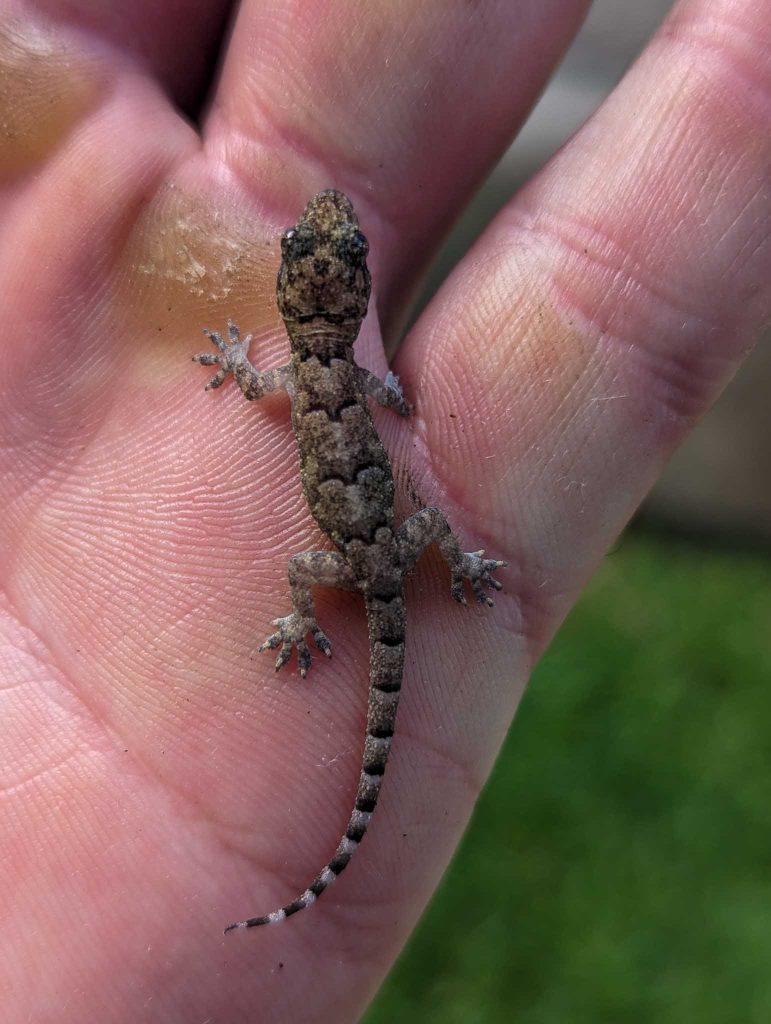
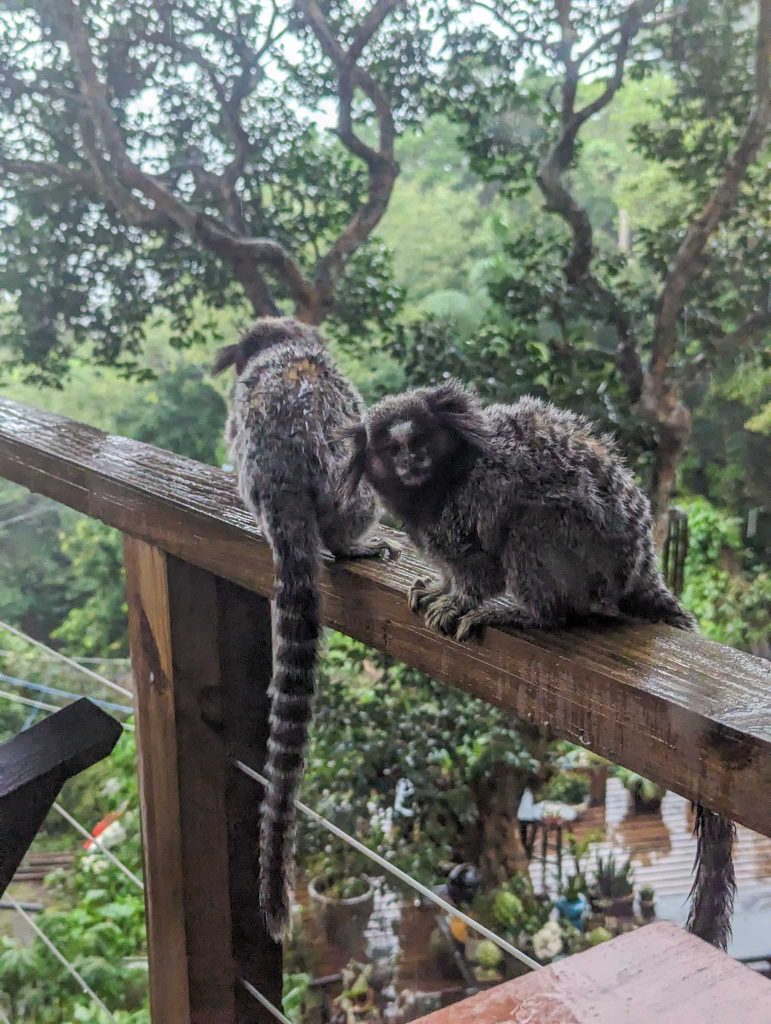
I spent a few weekends staying at other Airbnbs around Campeche, along the same big, long, huge, beautiful Campeche beach, at different locations and in different neighborhoods. I liked everywhere I stayed. When I return to Floripa, I plan to spend more time in Campeche.
Pântano Do Sul
At the southern end of the island of Florianópolis is a small village abutting a South-facing beach named Pântano Do Sul. It’s a secluded place that I stayed at for a week at the end of my three months in Floripa. I was accompanied by my favorite panther, and we went on hikes, saw monkies, took psychedelic mushrooms, and even met a half-Italian, half-Guatamalan octopus chef. I ate the best pizza. We found a dog who lost something very important underneath the shoreline waves. I pretended to be a philosopher. The panther watched from its perch in the corner of the room and didn’t speak. Drank a lot of tea (no coffee). Watched the panther meditate in the mornings. Worked on my computer. I read half a book about Marcel Proust that I really liked. Leveled up some of my understanding.
And then I left Floripa.
